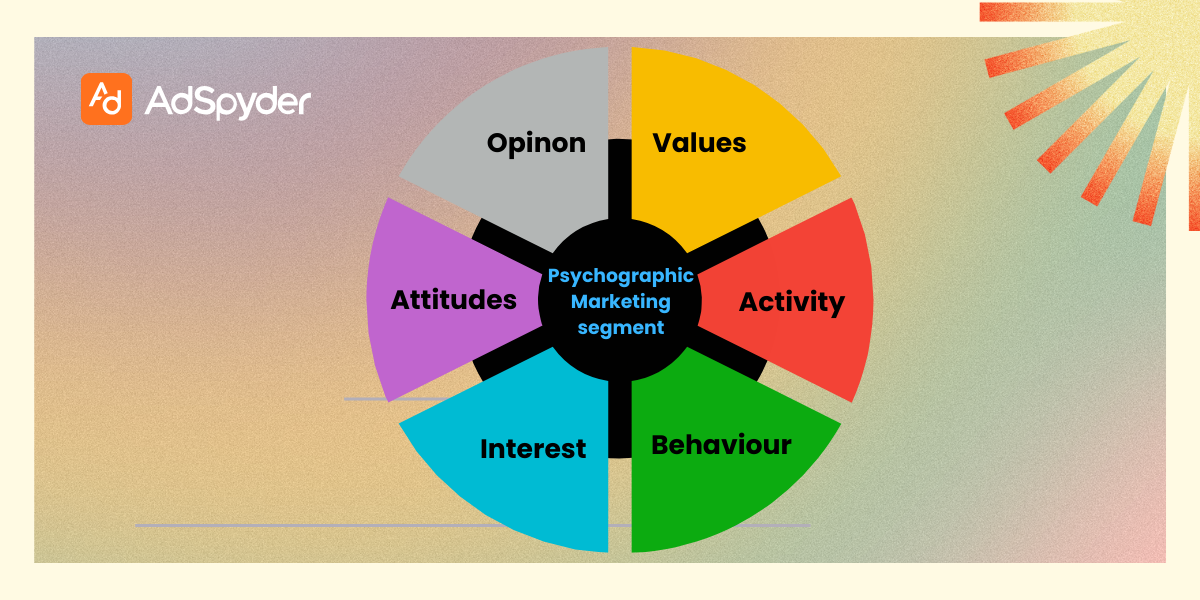Ready to Elevate your Marketing Strategy?
In the ever-evolving landscape of gambling advertising, reaching the right audience with the right message is key to success. Psychographic segmentation has emerged as a powerful tool for precise ad targeting, enabling marketers to understand the deeper motivations and behaviors of potential bettors. In this blog, we will explore the significance of psychographic segmentation in gambling advertising and how it allows marketers to craft tailored ad messages that resonate with specific user segments. By understanding psychographic factors like personality traits, interests and values of users on betting websites, effective advertising campaigns can be created that resonate more strongly. Whether you’re focusing on platforms like Amazon ads or LinkedIn Ad Campaigns. We will also explore methods of collecting psychographic data as well as its effect on performance of advertising ads. However, it is essential to address ethical considerations related to data privacy and user consent to ensure transparency and compliance with regulations.
Understanding Psychographics
Psychographic segmentation goes beyond traditional demographics to explore consumer psychology and understand their interests, attitudes, beliefs and values that impact user decisions. By examining psychographic characteristics, marketers gain insights into what motivates potential bettors to engage in online gambling and how they perceive brands. This understanding allows for more effective ad targeting and messaging that speaks directly to the unique needs and preferences of different user segments.
Defining Psychographics and Psychographic Marketing

Psychographic marketing delves deep into the complex web of consumer behavior.
- By understanding the core characteristics that influence choices, psychographic marketing crafts customized strategies and campaigns. These campaigns resonate with individuals on a deeper level.
- Unlike demographics, which only scratch the surface, psychographics uncover the hidden motivations that drive actions.
- Psychographic segmentation empowers precise ad targeting. Staying informed about the latest trends in programmatic advertising is essential in today’s dynamic landscape.
Delve into the synergy between these strategies in our detailed examination of Exploring the Latest Trends in Programmatic Advertising.
Benefits of Psychographic Segmentation
Psychographic segmentation offers several advantages that enhance the effectiveness of marketing strategies. By targeting customers based on their psychological attributes rather than just demographics, your ads get the most bang for the buck.
- Deeper Audience Understanding: It goes beyond basic demographic data to reveal insights into consumers’ lifestyles, values, and interests, enabling a more nuanced understanding of customer motivations.
- Enhanced Personalization: By tailoring messages that resonate with individual beliefs and preferences, brands can create more engaging and relevant ad content. You are more likely to relate to the ad copy if it is laced with personalization.
- Improved Customer Engagement: Ads that align with the audience’s psychographic profile are more likely to attract attention and foster a deeper connection with ad disclosure enhancing trust and better engagement. It also helps people to share among their common circles. This gains traction very quickly.
- Increased Conversion Rates: Personalized messaging based on psychographic factors can significantly boost conversion rates by appealing to the emotional triggers that influence purchasing decisions.
- Efficient Resource Allocation: By identifying segments most likely to engage, brands can focus resources on high-potential customers, reducing wasted ad spend.
- Better Brand Loyalty: Understanding and aligning with customers’ values fosters trust and loyalty, as consumers feel more understood and connected with the brand.
- Competitive Advantage: Companies using psychographic data to inform their strategies can differentiate themselves in crowded markets by delivering more compelling and meaningful experiences.
These benefits demonstrate how psychographic segmentation can be a powerful tool for creating highly effective and impactful marketing campaigns.
Types of Audience Segmentation
Here is a list of the various types of segmentation of the audience. You can use a combination of these segmentations based on your needs and goals.
| Segmentation Type | Description | Examples |
| Demographic Segmentation | Dividing the market based on age, gender, income, education, occupation, etc. | Age groups (18-24, 25-34), income levels, education levels |
| Geographic Segmentation | Segmenting based on location, such as country, city, or neighborhood. | Urban vs. rural, regional differences, climate zones |
| Psychographic Segmentation | Grouping based on lifestyle, values, attitudes, interests, and opinions. | Lifestyle (health-conscious, luxury-seeking), values (eco-friendly) |
| Behavioral Segmentation | Categorizing based on behavior towards a product, such as purchase history, brand loyalty, and usage rate. | Frequent buyers, brand-loyal customers, seasonal shoppers |
| Technographic Segmentation | Dividing based on technology usage patterns, device preferences, and digital behavior. | Smartphone users, social media users, e-commerce shoppers |
| Firmographic Segmentation | Targeting B2B customers based on company attributes such as industry, size, revenue, and employee count. | Industry type (tech, healthcare), company size (SMEs, enterprises) |
| Needs-Based Segmentation | Segmentation according to the specific needs or pain points of the audience. | Need for budget solutions, desire for premium features |
| Benefit Segmentation | Grouping based on the benefits consumers seek from a product or service. | Convenience-seekers, quality-focused, price-sensitive |
| Life Stage Segmentation | Targeting based on life stage such as students, newlyweds, or retirees. | College students, first-time parents, retirees |
| Cultural Segmentation | Segmenting based on cultural background, language, or ethnicity to tailor culturally relevant messaging. | Language preference (Spanish-speaking), cultural festivals |
Collecting Psychographic Data
Gathering psychographic data requires employing various methods to gain a holistic view of user behavior.
- Example: Exploring audience interests in gambling through social media listening sets the stage for leveraging psychographic segmentation in precise ad targeting.
- Analyzing social media sentiments helps identify key psychographic traits, enabling advertisers to craft tailored and emotionally resonant ad campaigns.
- This synergy enhances ad precision and deepens connections with the audience, optimizing gambling advertising strategies.
Developing Psychographic Segments for Gambling Ads
Once psychographic data has been compiled, marketers can utilize this to segment users based on similar characteristics and motivations, creating targeted ad messages which resonate with specific target groups. For example, one segment may be motivated by the thrill of competition, while another may be seeking relaxation and entertainment. Tailoring ad messages to each segment’s unique desires and preferences increases the likelihood of engagement and conversion.
Impact on Ad Performance
Psychographic targeting has been proven to be more effective than demographic targeting in driving ad performance. According to a survey, 84% of marketers believe that psychographic segmentation is more effective than demographic segmentation. Psychographic-targeted ads have been found to be 20% more likely to be clicked on than demographic-targeted ads. They also have a 15% higher conversion rate. Psychographically-informed behavioral targeting also increases click rates by 670%.
Ethical Considerations and Privacy
Psychographic segmentation can significantly improve ad targeting. But it is essential to address ethical considerations related to data privacy and user consent. Marketers must be transparent about the data they collect and how they use it for targeting. Ensuring compliance with data protection regulations is crucial to maintaining trust with users and protecting their privacy.
Conclusion
Psychographic segmentation empowers gambling advertisers to go beyond demographics and understand the deeper motivations and behaviors of potential bettors. By gathering psychographic data and developing precise ad segments, marketers can create tailored ad messages that resonate with specific user groups. The impact of psychographic targeting on ad performance is undeniable, with higher click-through rates, conversion rates, and brand awareness. However, it is vital to approach psychographic segmentation ethically and transparently, respecting user privacy and obtaining consent for data collection. Leverage the power of psychographic segmentation responsibly. With this, betting sites can enhance their advertising efforts. They create meaningful connections with their target audience.
FAQs
Psychographic data can be collected through surveys, interviews, social media analysis, and observing online behavior. Platforms like social media provide insights into user interests and interactions, while surveys and interviews unveil attitudes, values, and motivations.
Absolutely. Combining psychographic segmentation with demographic data enhances targeting precision. For instance, a cosmetics brand might identify a segment of environmentally conscious young adults (psychographics) within a specific age range (demographics) for a campaign promoting eco-friendly products.
Psychographic marketing goes beyond demographics by addressing the “why” behind consumer behavior. It creates more meaningful connections with customers by aligning ad messages with their underlying motivations and aspirations. This results in higher engagement and brand loyalty
Psychographic characteristics include hobbies, attitudes, beliefs, values, lifestyle preferences, and purchasing motivations. For instance, a segment might consist of adventure seekers who value thrill. Another might comprise individuals who prioritize sustainability and ethical consumption.
Psychographic segmentation enables marketers to tailor ad messages based on consumers’ personalities, lifestyles, and preferences. This precision ensures that ads resonate with the motivations and values of specific segments. This increases the likelihood of engagement and conversions.
Psychographic segmentation involves categorizing individuals based on their psychological traits, interests, values, and motivations. Demographic segmentation relies on characteristics like age and gender. Psychographic segmentation delves deeper into understanding why consumers make certain choices.



